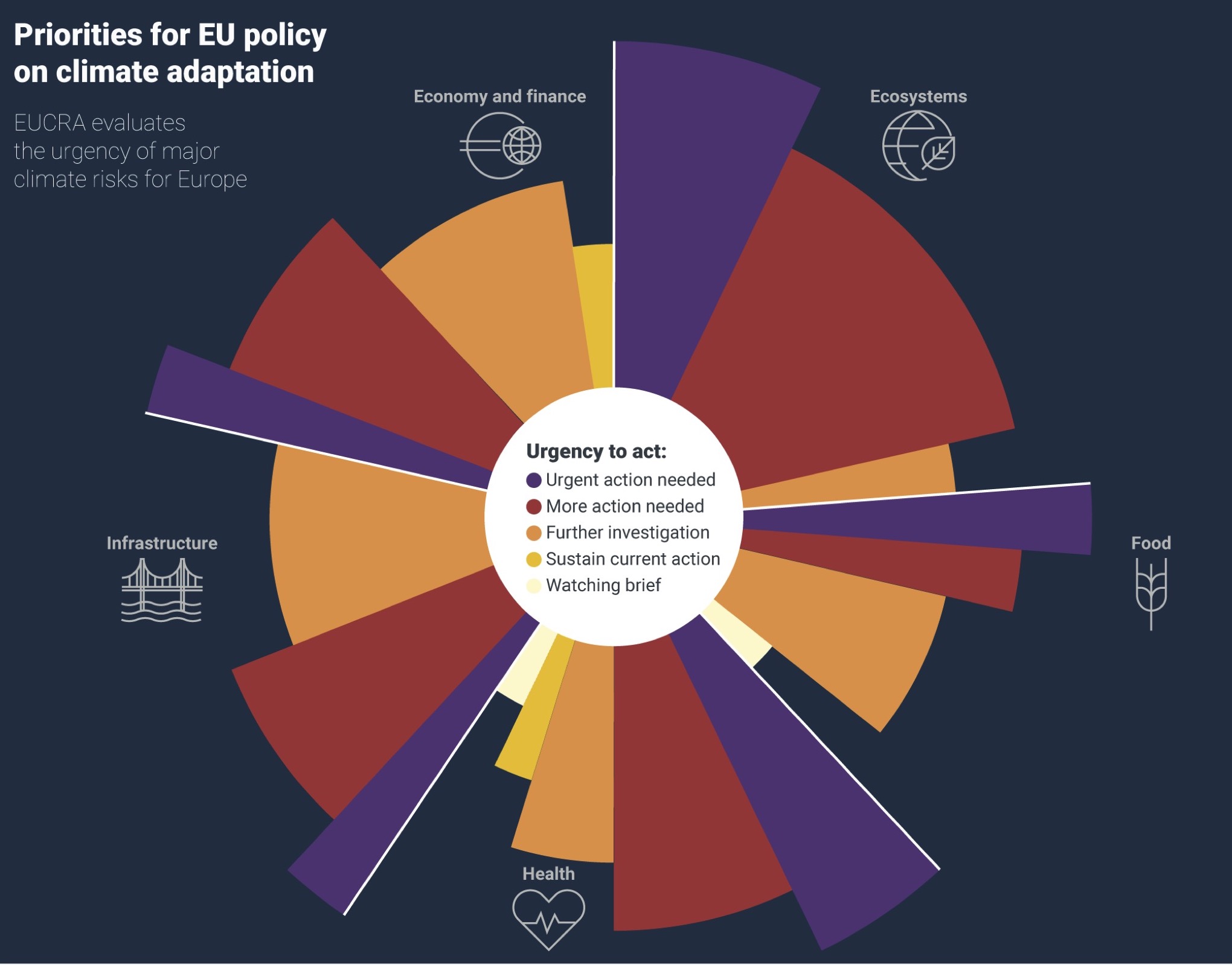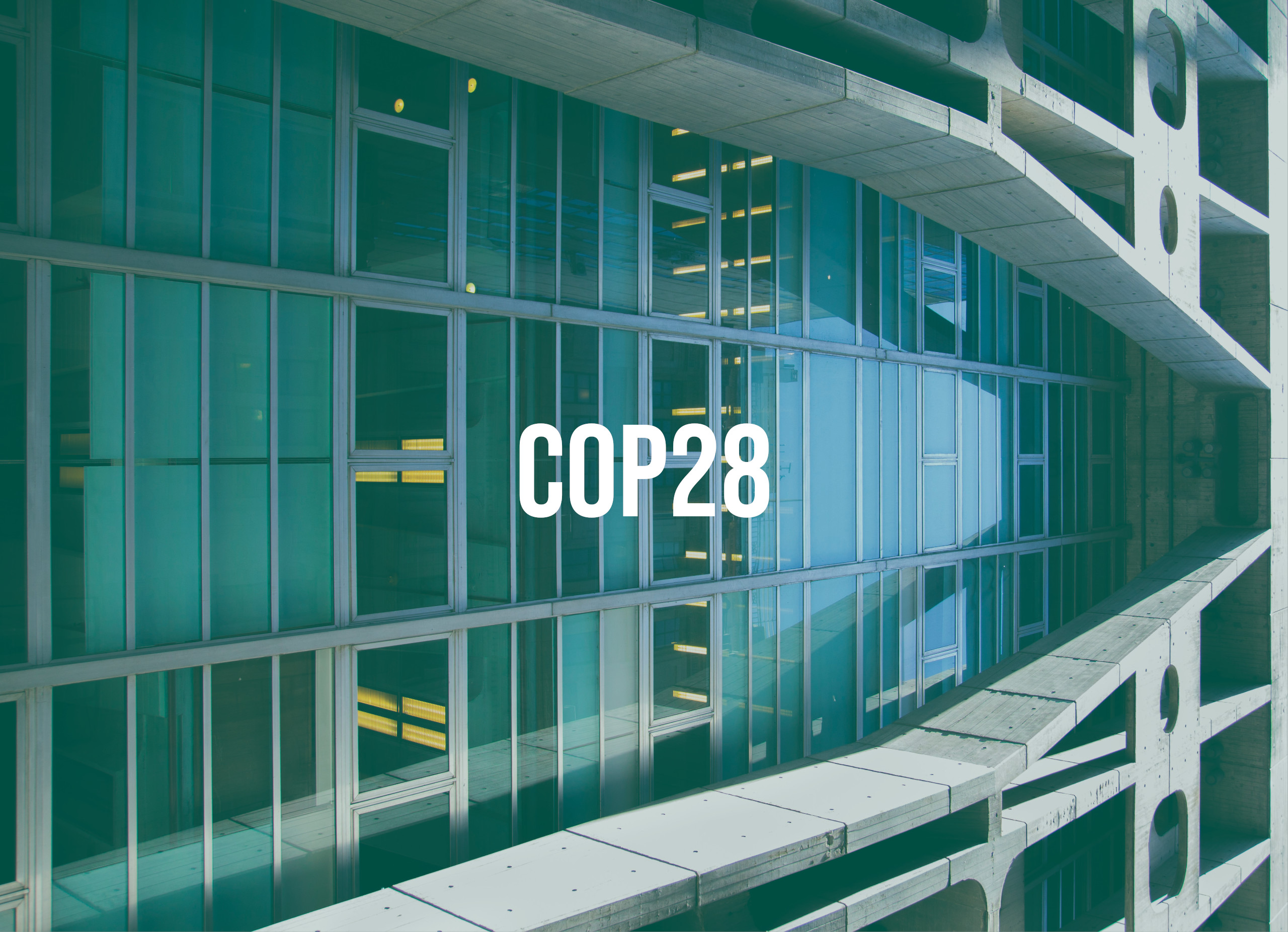Europe faces escalating climate risks across various sectors, posing significant threats to energy security, food production, ecosystems, infrastructure, water resources, financial stability, and public health. The European Environment Agency (EEA) has issued the first European Climate Risk Assessment (EUCRA), underscoring the critical levels many risks have already reached and the potential for serious consequences without swift action.
The assessment reveals that Europe’s policies and adaptation efforts are lagging behind, with urgent action required, particularly in regions like Southern Europe that are vulnerable to wildfires, droughts, and heatwaves. The report identifies 36 major climate risks across ecosystems, food security, health, infrastructure, and the economy, with urgent attention needed to conserve ecosystems, protect against extreme heat, floods, and wildfires, and ensure the viability of European solidarity mechanisms.
“Our new analysis shows that Europe faces urgent climate risks that are growing faster than our societal preparedness,” says EEA Executive Director Leena Ylä-Mononen. “To ensure the resilience of our societies, European and national policymakers must act now to reduce climate risks both by rapid emission cuts and by strong adaptation policies and actions.”
The EUCRA report aims to synthesize and complement existing climate impact knowledge to guide policymakers in navigating Europe’s increasingly complex climate landscape. Drawing on insights from various sources, including the IPCC, Copernicus Climate Change Service, and national assessments, it offers a comprehensive framework to support proactive measures in confronting Europe’s climate risks head-on.
Hans-Martin Füssel, an EEA Expert in Climate Change Adaptation, was involved in the European Climate Risk Assessment (EUCRA) report since the early planning of the project in 2022. In this interview, Füssel offers his insights and a comprehensive overview of the EUCRA’s key findings, its challenges and opportunities.

How did the EEA decide to undertake the EUCRA, and which specific research topics were instrumental in addressing the main issues highlighted in the report?
The European Commission committed itself to conduct a European Climate Risk Assessment in the revised EU Adaptation Strategy adopted in 2021. Later, the Commission asked the EEA to conduct this assessment, in close cooperation with relevant experts and stakeholders.
The first EUCRA was conducted in a relatively short time frame, about one and a half years. Therefore, it was not possible to conduct substantial new research or quantitative modeling. The first EUCRA draws on a wide range of relevant research, from climate science to environmental science, and from public health to social sciences. This knowledge base was synthesized in a new way, 36 major climate risks for Europe were identified and evaluated in a structured way by an independent risk review panel. Furthermore, the EUCRA authors assessed the relevant policy context and the social justice implications of climate risks and adaptation policies. These efforts aim to make the available knowledge relevant and accessible for European policymakers.
The EUCRA highlights that Europe’s policies and adaptation actions are not keeping pace with the rapidly growing risks. What are some of the urgent risks and the actions recommended to address them?
Marine and coastal ecosystems across Europe are already at critical risk due to climate change and other environmental threats, including pollution, eutrophication and overfishing. Many terrestrial and freshwater ecosystems are also facing critical risks, in particular in southern Europe, due to droughts, heat stress, wildfires, and insect pests. Southern Europe also faces critical risks for crop production and human health. Urgent action is also needed to improve management of flood risks.
The focus of the first EUCRA is to identify and evaluate climate-related risks and to assess the relevant policy context. Appropriate actions depend on the particular risk and the regional context. For example, improved water management is needed to preserve aquatic ecosystems in drought-prone regions. Well-designed heat health action plans have been effective in reducing mortality from heat waves, which affects primarily elderly people. And while climate change facilitates the spreading of wildfire, most fires in Europe are started by humans, both accidentally and intentionally. More focus is needed for preventing these fires, not only for fighting them.
The EUCRA also addresses the economic and financial implications of climate risks. How do climate extremes impact Europe’s economy and financial systems?
In each of the last three years, Europe faced direct damages of more than 50 billion Euro from climate-related extremes. The most costly events in this period were floods, including in Italy, Germany, Greece and Slovenia. The reconstruction costs of the floods hitting Slovenia in August 2023 are estimated at 10 billion Euro, which corresponds to 16% of Slovenia’s gross domestic product. Such events, possibly in combination with other economic, financial or geopolitical risk factors, can overwhelm the capacity of citizens, communities, regions and even countries. They can also threaten the viability of insurance providers and other financial institutions.
It is not only these extreme events that have economic implications. Regions largely dependent on particular economic activities, such as agriculture, fisheries and tourism, may see the livelihoods of people at risk, when climatic conditions become unsuitable. And both outdoor and indoor workers are less productive or need more breaks when temperatures get too hot.
What measures are recommended to address these risks?
There is no single solution to address the wide range of climate risks identified in EUCRA. However, doing nothing is generally much more expensive than proactive action. A wide range of policymakers, planners and professions need to plan for a changing climate, including water managers, forest managers, urban planners, medical facilities, and many more. The good news is that many actions to address climate risks in the future are cost-efficient also in the short term and may bring important side benefits. For example, reducing leakages in water supply systems not only addresses the risks of future droughts; it also saves money on a daily basis.
The report stresses the importance of closer cooperation at the EU and Member State levels. What is the significance of collaborative efforts in addressing and reducing climate risks? What are the main issues to address? What are the main opportunities and challenges for the future?
For most of the climate risks identified in EUCRA, both the EU and the Member States have a role to play. In many cases, EU policies provide the overarching framework whereas the implementation happens at the national or subnational level. This means that the EU cannot address these risks alone; but uncoordinated actions by Member States are not efficient either. The EU is already providing significant support to Member States and regions in increasing their resilience to climate risks, from the establishment of the Copernicus Climate Change Service to LIFE programmes and the Mission on Adaptation, but more is still needed.
EUCRA does not prescribe how the EU and Member States should address specific risks, but it highlights the need for a serious discussion on risk ownership, that means understanding who is in the best position to address specific climate risks. The same is also true within countries, because measures to reduce risks from river flooding in one region can affect the flood risks downstream.
The challenge in discussions about risk ownership is to find an appropriate balance between empowering and providing support to those at risk, while requiring actors at different levels to do their best and be accountable for their actions.
What are some of the key knowledge gaps identified in the report, and how can the EU play a role in improving our understanding of climate risks and their management?
Many individual climate risks are already reasonably well researched and understood. But critical situations in the real world often arise when different risk factors come together, such as heatwaves and droughts limiting domestic energy production when the import of energy carriers is limited or expensive owing to geopolitical factors; or an extreme climate event overburdening health services that are already stretched from a pandemic or budget cuts. In EUCRA, we also addressed such complex risk constellations in so-called risk storylines, but knowledge about the interaction of climatic and non-climatic risk factors is still limited.
How does the EUCRA report complement existing knowledge on climate impacts and risks for Europe, and how can it support strategic policymaking?
EUCRA complements existing knowledge by identifying and evaluating a large number of climate risks for Europe in a structured approach, and by highlighting the linkages between different risks and sectors. It can support strategic policymaking by providing a coherent picture of the risk landscape, and identifying both exposed policies as well as policies that can help reduce risks. Many experts from across the European Commission and other stakeholders have been involved in this first EUCRA, from discussing priorities to providing input to specific sections. We hope that this inclusive process has raised awareness that addressing climate risks is not just environmental policy. Climate risk management is also good economic policy, social policy, and health policy.






